Meet UT Dallas CS Alumni Michael Lewellen of Tarski Technologies in Richardson
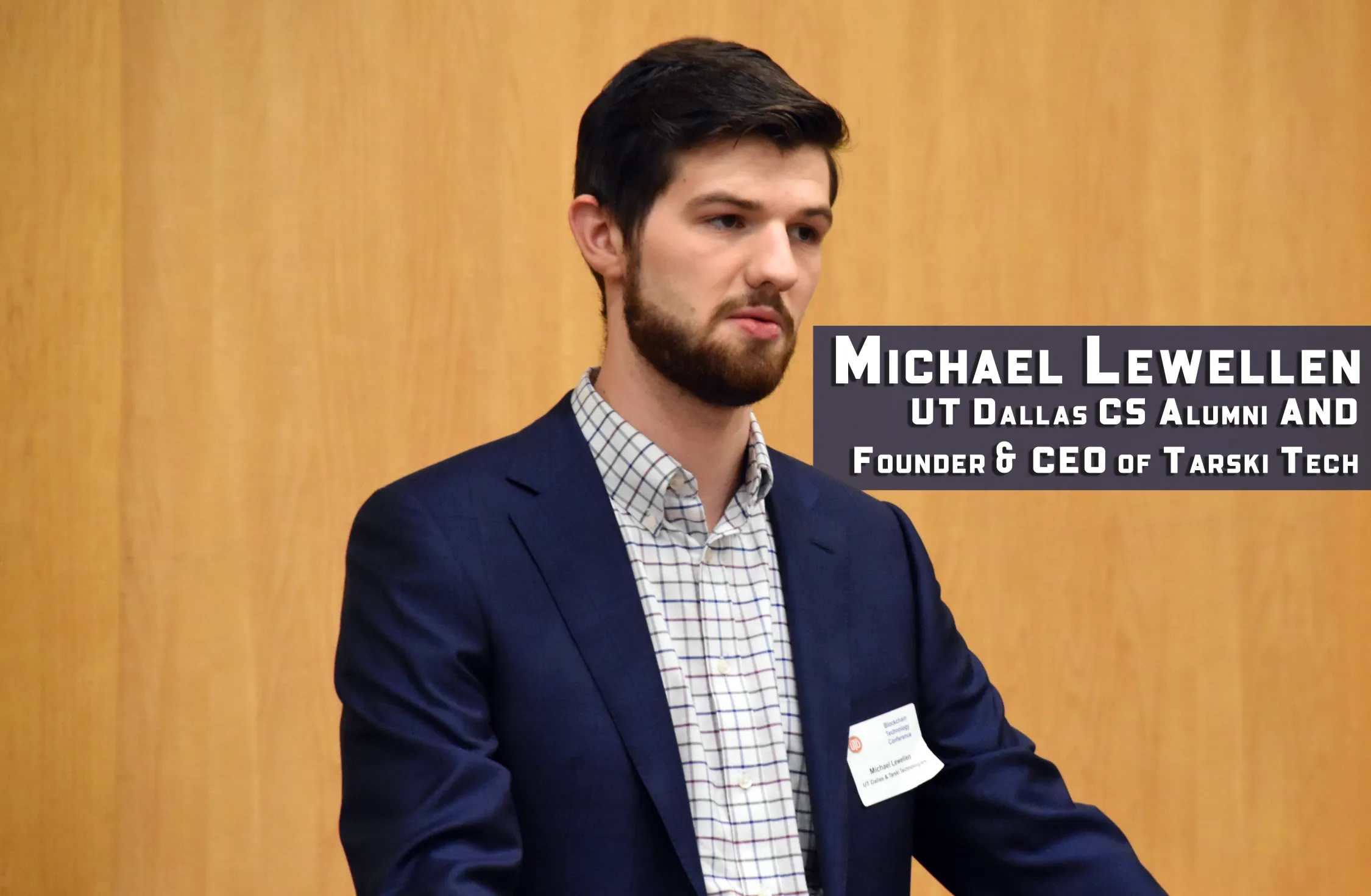
Via VoyageDallas Interview – Today we’d like to introduce you to Michael Lewellen the CEO and Founder of Tarski Tech.
Michael, let’s start with your story. We’d love to hear how you got started and how the journey has been so far.
I first got started in the blockchain industry back in 2012, when I began mining Bitcoin on spare computers to earn some extra income in high school. I already had experience in the IT field from my father’s home business, so it didn’t take me long to learn how to set up mining rigs and cryptocurrency wallets. Once I started regularly attending Bitcoin meetups in Dallas, I kept getting approached by other enthusiasts that needed help setting up their own wallets and miners. Pretty soon, I became a regular consultant for cryptocurrency in the DFW area. Once I turned 18, I formed my own consulting firm, Cryptocurrency Consulting to officially offer professional consultations.
I got accepted to the University of Texas at Dallas in 2015 to study Computer Science as I continued my consulting business. Around the same time, Ethereum was launched to allow blockchains to be programmable by offering smart contracts that enable decentralized applications (DApps). It was perfect timing for me as I was learning programming in school at the same time that development work in the blockchain industry become more widespread. By 2017, I joined several classmates in starting a Blockchain Club at UT Dallas, and by Fall semester I was organizing meetings and workshops on campus as President.
At the same time that the Blockchain Club was taking off, I started doing more blockchain development. I served as an adviser and developer for several ICO’s and worked as a software consultant with Thomson Reuters in early 2018 to help them research use cases for smart contracts in the tax and accounting industry. Most recently, I’ve been doing university research into blockchain applications in financial engineering and working for several startups as their blockchain development lead. I’ll be graduating in May 2019 and plan to continue working on blockchain projects as a software architect and strategic consultant.
Overall, has it been relatively smooth? If not, what were some of the struggles along the way?
Financially, I’ve been lucky to have supportive parents. When I first started my consulting business, my parents gave me an initial loan of $5000 to get started which I paid back within a year WITH interest. The biggest struggle was getting over the steep learning curve for blockchain development. It’s a very new field, especially back when I started, with few if any official resources to learn from. My previous experience with IT and cryptocurrency made it easier to get started, but it still took me about a year of learning and practicing to become a professional blockchain developer. The Blockchain Club made a big difference by not only learning and talking with other members but giving me opportunities me to reinforce what I had learned by running coding workshops and hackathons.
Alright – so let’s talk business. Tell us about Tarski Technologies – what should we know?
Tarski Technologies is an emerging technology consultancy that specializes in blockchain education, development and strategic advising. Over the last few years, my focus has shifted away from digital currency consulting to blockchain software development as the industry, and my own expertise in the area has grown. I’ve got half a dozen developers and researchers working alongside me on client projects with several successful completions under our belt.
I’m most proud of the fact that this company was one of the first in DFW to be offering consultations for blockchain and digital currency which is reflected by our level of expertise and our track record of satisfied clients.
Any shoutouts? Who else deserves credit in this story – who has played a meaningful role?
For someone my age, great mentors are the single most important factor in success and I’ve had plenty.
As I began to learn more about blockchain development, there were many who gave invaluable advice including the original club founder, Chris Bailey and some of our first club sponsors including Craig Hall, Dr. James Scott, and Bryan Chambers of the Blackstone Launchpad. I took several online courses and got the chance to meet one of my instructors, Rob Hitchens at the third Ethereum Conference, who was an absolute joy to meet and gave me a strong sense of good development practices. I also learned a lot from my time working at Thomson Reuters where I got to meet more senior developers that taught me a lot about developing in corporate environments (shout out to Ali Agha for this opportunity).
In business, I’ve had several partners in project ventures that have ensured success. I’ve learned a great deal just from meeting other blockchain entrepreneurs in local organizations and meetups including Tech Titans and the North Texas Blockchain Alliance (NTBA). Last but not least, Humza Shazad, has been an invaluable partner this last year. Humza had worked at Ericsson as their Global Blockchain Driver before he became an emerging technology consultant. We’ve had the opportunity to work together and I’m proud to say that we’ve co-founded Tarski Technologies. As UTD Alumni’s, one of our objectives is to bring more corporate blockchain projects to UT Dallas so that students can gain more experience in this new industry.
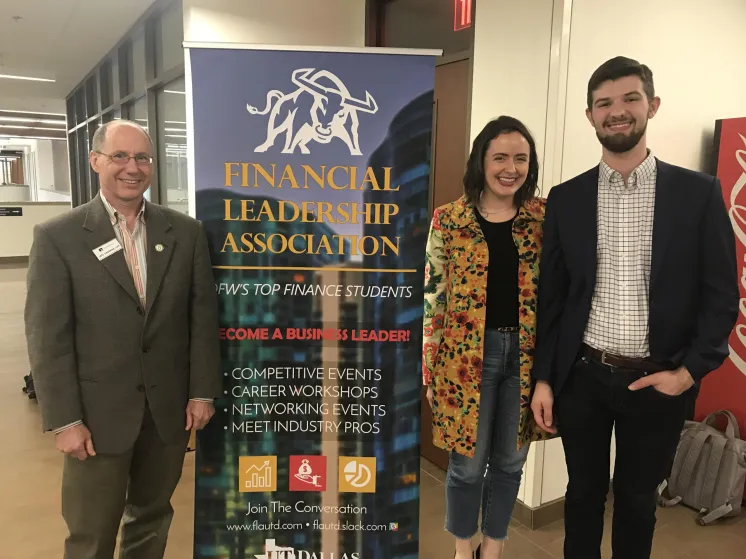
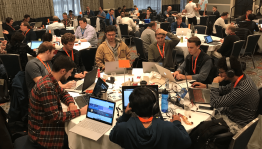
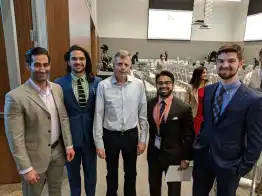
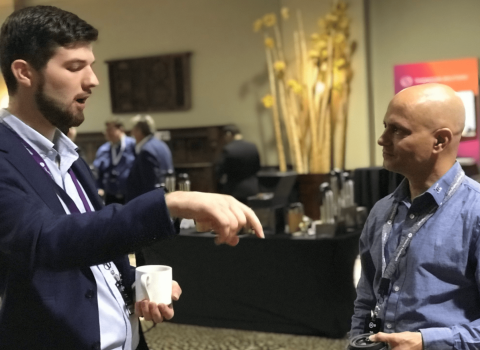
ABOUT THE UT DALLAS COMPUTER SCIENCE DEPARTMENT
The UT Dallas Computer Science program is one of the largest Computer Science departments in the United States with over 2,800 bachelors-degree students, more than 1,000 master’s students, 190 Ph.D. students, 52 tenure-track faculty members, and 41 full-time senior lecturers, as of Fall 2018. With The University of Texas at Dallas’ unique history of starting as a graduate institution first, the CS Department is built on a legacy of valuing innovative research and providing advanced training for software engineers and computer scientists.




